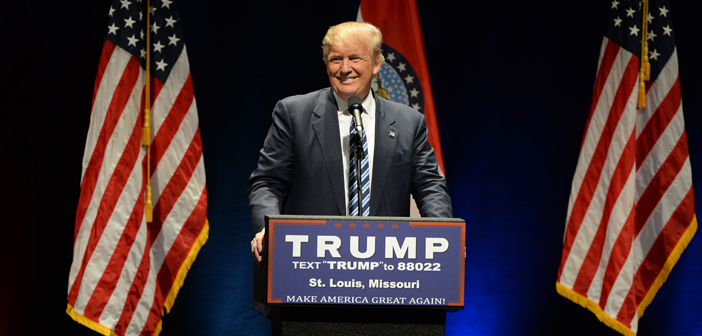By Chip Rogers
When the 115th Congress is sworn in on January 3, Republicans will control the federal government for only the second time in this millennium. And for the first time in decades – especially with a business owner and entrepreneur in the Oval Office – the possibility of sweeping tax reform is very, very real.
President-elect Donald J. Trump is inheriting an economic reality eerily reminiscent of the early Reagan years: high tax rates, excessive government regulation and out-of-control spending on social programs. Thirty years ago, President Ronald Reagan’s response was tax cuts for businesses and the wealthiest Americans – what became known as supply-side (or “trickle-down”) economics. He reasoned, as advised by then-Chief Economic Advisor Art Laffer, that when the rich had more money to spend and invest, the result would be economic growth in the form of new jobs, more saving and greater investment.
Whether Reagan was truly successful remains up for debate. As 2016 draws to a close, Trump’s tax proposal is looking more and more like his Cold War-era predecessor’s, and it’s time for AAHOA members to start thinking about what that might mean.
First, and perhaps most immediately relevant, the Trump administration likely will act swiftly to preserve 1031 “like-kind” exchanges – and with good reason. A 2015 study found that like-kind exchanges “encourage investment, contribute significant federal tax revenue, lead to job creation and result in less debt.”
Second, the president-elect’s tax plan calls for repeal of the estate tax so favored by President Barack Obama and his party. The Obama administration estimates that doing away with the estate tax will deprive the federal coffers of more than $269 billion over the next 10 years, but fails to take into account the continued business growth and reinvestment that would be possible absent the heirs’ multimillion-dollar tax obligation to Uncle Sam.
Third, as The Washington Post’s Fareed Zakaria has alluded to, Trump is easily the most politically unrestrained president-elect in American history. He has an unprecedented opportunity to simplify the tax code in such a way as to purge special-interest loopholes and political favors from its thousands of lines. The United States has the world’s longest tax code, and while it tends to be more competitive than other similarly prosperous countries, it ranks an abysmal 53rd on the World Bank’s Ease of Doing Business index.
It is no secret that Trump has experienced some growing pains in policy development. Differing interpretations by different news outlets, coupled with multiple revisions by the Trump team, leave most of his plans and intentions open to debate. While it’s not yet entirely clear what tax reform could or would look like under the president-elect, one thing is certain: as an entrepreneur himself, well-acquainted with the barriers to economic growth created by regulatory overreach and over-taxation, Trump is poised to give business owners the fiscal green light to revive and pursue the true American Dream.




